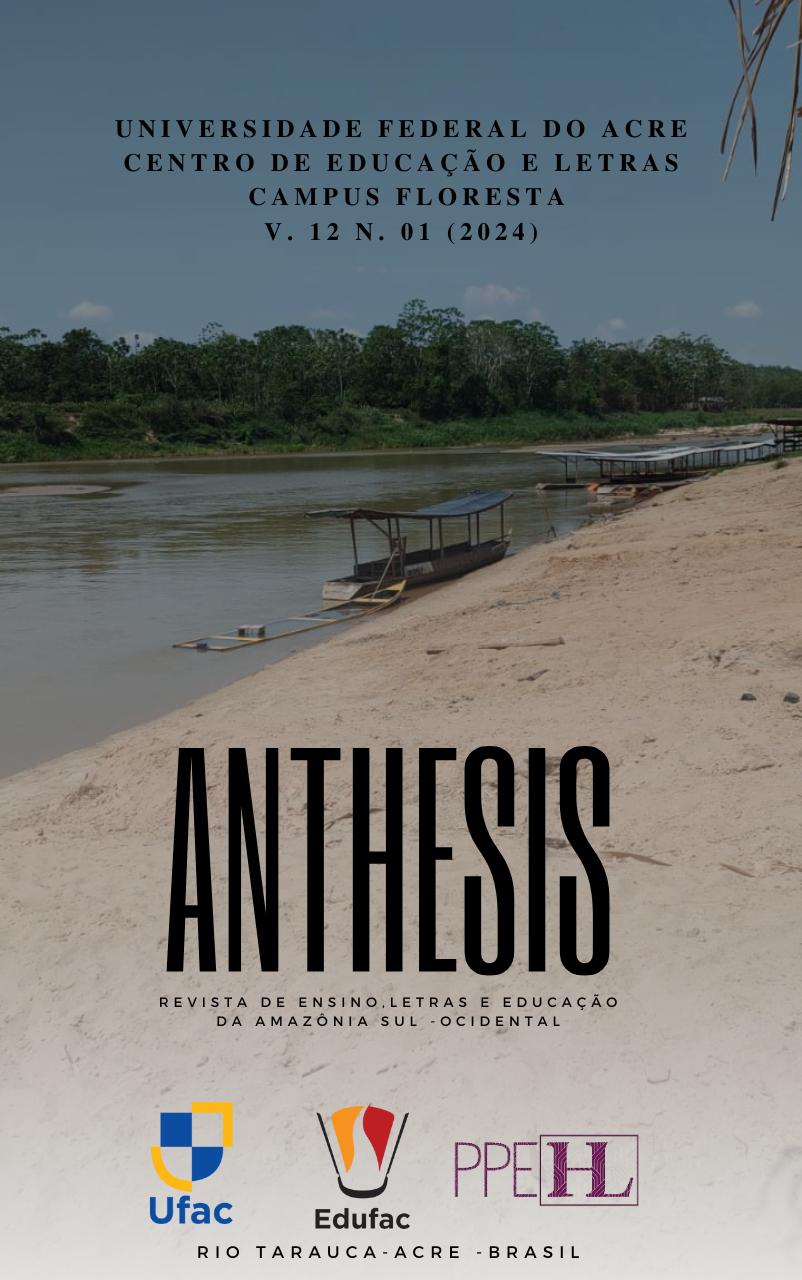MULTILINGUALISM AND MIGRATION OF THE HUNI KUIN PEOPLE IN THE FILM AS VOLTAS DO KENE
DOI:
https://doi.org/10.29327/2435693.12.1-7Keywords:
teoria bakhtiniana, multilinguismo, migração, povo Huni Kuin, keneAbstract
The article analyzes the social and cultural transformations resulting from the migratory processes of the Huni Kuin people, highlighting the linguistic and cultural tensions that emerge in this context, based on Bakhtinian theory and its concepts of dialogism, heteroglossia, and utterance. Through the analysis of the film As Voltas do Kene, directed by Zezinho Yube, and the statements of Joaquim Maná, the study explores how the communicative and cultural practices of the Huni Kuin transform, adapt, and find new meanings in response to historical and social challenges. The film addresses the revival of the memory and cultural practices of the Huni Kuin people, emphasizing their traditional graphic art, kene, and highlighting how this tradition resists the changes imposed by forced migratory processes initiated during the rubber boom. The analysis suggests that multilingualism emerges as a form of cultural resistance, where languages are recreated in response to new social and historical conditions. Furthermore, the article discusses how the film portrays the Huni Kuin struggle to maintain their cultural identity in a context of migration and interaction with other cultures, highlighting the tensions between preserving traditions and adapting to the transformations imposed by modernity. The study adopts a bibliographic methodology, complemented by film analysis and testimonies from indigenous leaders.
Keywords: Bakhtinian theory, multilingualism, migration, Huni Kuin people, kene
Downloads
References
BAKHTIN, Mikhail. Marxismo e filosofia da linguagem. São Paulo, HUCITEC, 1997.
CHRISTINO, Beatriz. “Hoje nós não somos mais Huni Kuin só na nossa língua”: o português Kaxinawá em interações transculturais. Trabalhos em Linguística Aplicada, v. 57, n. 3, p. 1486–1511, set. 2018. Disponível em:
https://doi.org/10.1590/010318138653690442341. Acesso em 16 out. 2024.
CONSTITUIÇÃO DA REPÚBLICA FEDERATIVA DO BRASIL DE 1988.
Disponível em: http://www.planalto.gov.br/CCIVIL_03/Constituicao. Acesso em: 16 out. 2024
CUNHA, Manuela Carneiro da. Tastevin, Parrissier: Fontes sobre índios e seringueiros do Alto Juruá. Rio de Janeiro: Museu do Ìndio, 2009 (Série Monografias)
IGLESIAS, Marcelo Piedrafita; AQUINO, Terri Valle de. Povos e terras indígenas no Estado do Acre: Caderno Temático - Programa Estadual de Zoneamento Ecológico-Econômico - Fase II. Rio Branco: Secretaria de Estado de Meio Ambiente e Recursos Naturais, 2005.
IGLESIAS, Marcelo Manuel Piedrafita. Os Kaxinawá de Felizardo: correrias, trabalho e civilização no Alto Juruá. 2008. Tese (Doutorado em Antropologia Social) – Universidade Federal do Rio de Janeiro, Museu Nacional, Programa de Pós-Graduação em Antropologia Social, Rio de Janeiro, 2008.
INSTITUTO SOCIOAMBIENTAL (ISA). Huni Kuin (Kaxinawá). Povos Indígenas no Brasil. Disponível em: https://pib.socioambiental.org/pt/Povo:Huni_Kuin_(Kaxinaw%C3%A1). Acesso em: 16 out. 2024.
KAXINAWÁ, Joaquim Paulo de Lima. Confrontando registros e memórias sobre a língua e a cultura Huni Kui: de Capistrano de Abreu aos dias atuais. 2011. Dissertação – Universidade de Brasília, Brasília, 2011.
MACHADO, Irene. Concepção sistêmica do mundo: vieses do círculo intelectual bakhtiniano e da escola semiótica da cultura. Bakhtiniana: Revista de Estudos do Discurso, v. 8, n. 2, p. 136–156, jul. 2013. Disponível em:
https://doi.org/10.1590/S2176-45732013000200009. Acesso em: 10 nov. 2024.
PPG ARTES CÊNICAS - UFAC. Defesa de Dissertação - Discente Evanildo da Silva Albuquerque Kaxinawá (Dasu Inu Bake Huni Kuĩ). [s.l.]: YouTube, 2022. Disponível em: https://www.youtube.com/watch?v=bYEblw5117s. Acesso em: 14 out. 2024.
ZEZINHO YUBE. As voltas do kene, Vídeo nas aldeias, 2010.
Downloads
Published
How to Cite
Issue
Section
License

This work is licensed under a Creative Commons Attribution-NonCommercial 4.0 International License.






